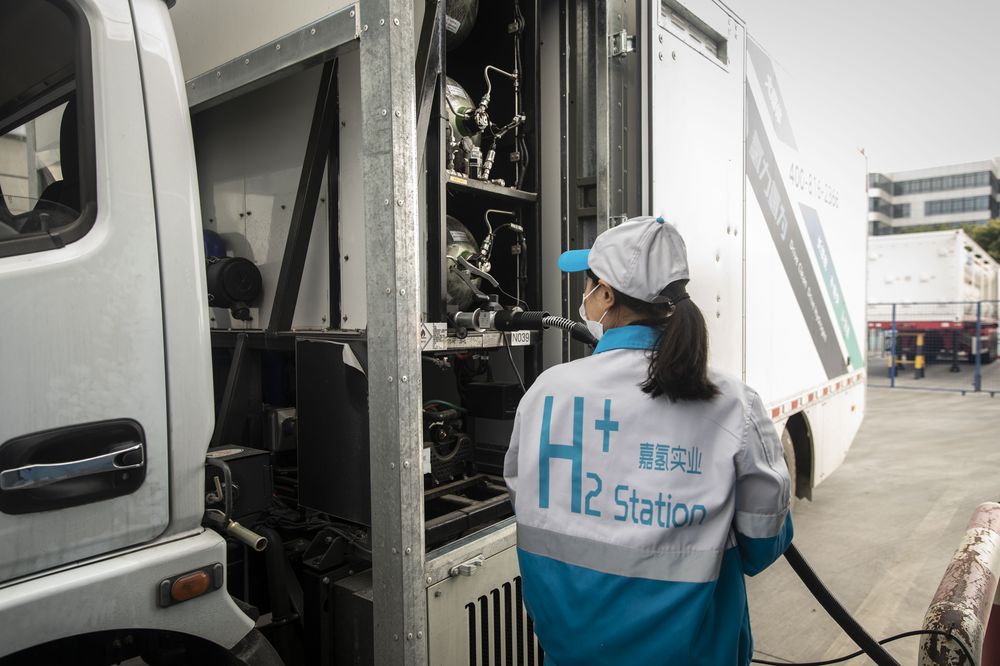
Bloomberg — Tesla Inc. Chief Executive Officer Elon Musk has spent years mocking the idea of using hydrogen fuel cells rather than electric batteries to power next-generation green vehicles. “Fuel cells = fool sells,” the boss of the world’s top electric-car maker tweeted in June.
China, the world’s biggest market for electric vehicles, isn’t so quick to dismiss the alternative to batteries. Officials are promoting the development of hydrogen-powered cars, trucks and buses, with Beijing offering to reward cities that achieve adoption targets.
State-owned oil refiner Sinopec said Oct. 29 it’s investing in hydrogen production, transportation and fuel cells and is building hydrogen vehicle refueling stations.
The new infrastructure will likely support hydrogen-powered trucks and buses, with lithium-ion batteries remaining dominant for cars. Hydrogen makes sense for commercial vehicles since a fuel-cell automobile can go for longer on a single tank of hydrogen versus a battery-powered one on a single charge of electricity, according to Wang Chaoyun, the chairman of Anhui Mingtian Hydrogen Energy Technology Co., a startup that develops fuel-cell stacks and other inner workings for hydrogen vehicles.
The Japanese automaker sees the market dominated by hydrogen-powered trucks and buses rather than cars, said Chisato Yoshifuji, a project manager at Toyota. “China is concentrating on commercial vehicles and that aligns with Toyota’s thinking,” she said. “It’s a huge trend supported by the government.”
Beer Delivery
Other foreign-backed companies see opportunities in hydrogen trucks, too. Hyundai Motor Co. on Nov. 5 announced agreements with five Chinese partners to promote the development of hydrogen fuel-cell commercial vehicles.
“Hyundai believes China has a massive potential for hydrogen powered commercial vehicles,” said In Cheol Lee, Hyundai’s executive vice president and head of commercial vehicle division. Hyundai and its regional partners aim to supply some 4,000 fuel cell electric commercial vehicles in China by 2025.
“The limited details in this plan suggest, at the national level, policy makers are still deliberating over the role of hydrogen in China’s energy economy and the country’s goal of carbon neutrality by 2060,” BloombergNEF analysts Siyi Mi and Jinghong Lyu wrote in a report published Nov. 13, with reference to China’s 15-year plan for new-energy vehicles.
ReFire, a Shanghai startup that manufactures fuel-cell engines, is one company that’s nonetheless preparing for a surge in demand. It makes about 1,000 engines a year for Chinese producers of trucks and buses and expects annual capacity to soar to 20,000 as early as 2024. The competitiveness gap with EVs will shrink as hydrogen gains acceptance, Chief Executive Officer Robin Lin said.
“There’s a great chance for a dramatic drop in hydrogen prices,” he said. “As long as hydrogen power is cheap enough, it’ll be a natural choice.”
©2020 Bloomberg L.P.
Read the most up to date Fuel Cell and Hydrogen Industry news at FuelCellsWorks




